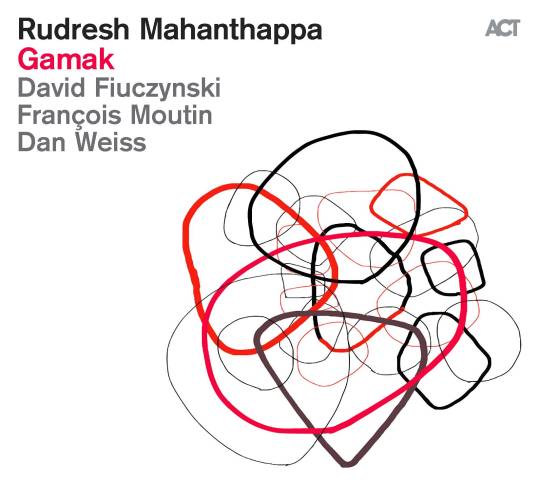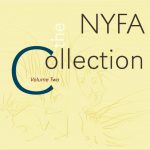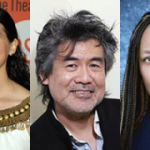Fellows at 30: Rudresh Mahanthappa
“More exciting to me is to seek out that middle ground where everyone is pushed beyond their usual comfort zone in making great attempts to flourish in unfamiliar spaces.”
NYFA continues to mark the 30th anniversary of its Artists’ Fellowship Program with the release of The NYFA Collection: Vol. 2 (innova recordings) this Friday, November 13. To celebrate this album we interviewed fiscally sponsored artist, two-time fellow in Music/Sound, and contributor to The NYFA Collection: Vol. 1, Rudresh Mahanthappa. Rudresh is a saxophonist/composer who mixes South Indian classical music with progressive jazz. His latest project is titled Bird Calls.
The NYFA Collection: Vol. 2 will be available for purchase on NYFA’s site on Friday.
NYFA: What first attracted you to progressive jazz, and what about it keeps you composing today? Can you tell us about your current project Bird Calls?
RM: Jazz as a contemporary art form has always remained relevant by absorbing current states of diversity. This music is truly America’s own world music, a result of the hybridity and cultural confluence that are the DNA of artistic expression in this country. As an Indian-American, jazz quickly proved to be an effective way to embrace my bicultural identity in its entire confusing splendor. While much of my work has dealt with the music of ancestry, my palate of influences runs a clear gamut between European classical music, progressive rock, hip-hop, and beyond. For me, jazz is the only music that allows these myriad concepts and ideas to comingle with an end result that defies genre and label.
Bird Calls is a devotion to the great Charlie Parker. The crux of the project is to show that the gifts Parker bequeathed to modern music, as both improviser and composer, are as important and germane today as they were in 1945. Instead of paying tribute in a more traditional way by “simply” playing his music, I instead composed new work based on his ideas. The results have been intriguing and the reception has been amazing!
NYFA: As a recipient of two NYFA fellowships among many other awards, could you tell us why NYFA’s Fellowship is unique, and can you recall any projects that were facilitated by that support?
RM: The first time I received the NYFA fellowship was so exciting as it was the first time I was recognized for work that I had already done, a real acknowledgement that I was (maybe) on the right track. Sometimes awards such as these result in new work but bettering ones life and productivity is perhaps more important. I went and bought a much-needed new computer and paid off a credit card. I’m sure lots of new work came with the resulting technological and financial freedom! The second time I received the fellowship was just a flat out shock. If I remember correctly, some of those funds went towards my Apex project with alto saxophone legend Bunky Green and some of those funds went towards taking my wife on a much needed vacation. I’m sure the latter also led to lots of new work.

NYFA: Since 2002, six of your projects- Blackwater, Mother Tongue, Apti, Anvita, Parakram, Anvita, and Gamak – have been fiscally sponsored by NYFA. Why did you initially choose fiscal sponsorship for these projects, and what draws you back to the program?
RM: Most of those projects were fiscally sponsored as a way to apply for the NYSCA Individual Artist grant. More recently, Gamak has received two USAI grants, one to tour Canada and one for an upcoming tour of India. For me, fiscal sponsorship is important as it allows me to fundraise as if I were a non-profit without the hurdles of establishing a 501©3. NYFA has been incredibly supportive of my endeavors and I am very grateful. Going forward, I am looking at how to maximize this relationship, as it truly is a wonderful opportunity to keep projects alive on a long-term basis.
NYFA: Collaboration seems crucial to producing high-quality, diverse music, would you talk to us about how you successfully work in an ensemble?
RM: Much of my work has been as a leader but I have had the opportunity to collaborate with a wide variety of other artist including musicians and choreographers from around the world. The sharing of ideas is obviously important to forwarding the humanity in general. More exciting to me is to seek out that middle ground where everyone is pushed beyond their usual comfort zone in making great attempts to flourish in unfamiliar spaces. My ensemble with South Indian saxophone great Kadri Gopalnath is an exemplary example of this, a scenario where all involved found themselves in a place where the walls dividing jazz and classical Indian music dissolved into a communication so sublime and true to the best faces of global culture and citizenry. Song of the Jasmine with Ragamala Dance was another prime model of this level of collaboration. In that case, the dance and music became a unified whole as the work transcended the modes of artistic expression. This sort of artistic mandate can occur within any medium or genre regardless of scope or focus. I truly believe that.
NYFA: What is the funding climate for musicians like today? How do you balance your creative practice as a musician with operational necessities such as fundraising?
RM: The funding climate seems bleak and optimistic simultaneously. There is much more competition for fewer grants as the number of applicants has increased for the MAP Fund, Creative Capital, or the Joyce Award to name just a few. But on the other hand, we see the rise of Kickstarter, IndieGogo, and other sorts of crowd-funding platforms where direct fan-to-artist relationships are facilitated without the need for the traditional recording industry model. For me, some projects flourish within traditional commercial models and others need the assistance of the grant world. I always have the most relevant grant deadlines in my calendar and maintain ongoing relationships with presenters who have supported my work over the years. Whether I actually make those deadlines is another story but at least I am aware of my goals and to what extent they are real and actualized.
NYFA: NYFA and innova Recordings are releasing Vol. 2 of The NYFA Collection this Friday, November 13, 2015. Your piece Black Water is on Vol. 1. How does it feel to have Black Water in dialogue with the work of so many other New York artists working so differently?
RM: I was actually totally flattered to be part of that compilation. An honor and a pleasure.
Follow the work of past and present NYFA Fellows on Twitter at #NYFAFellows30 and find out more about the activities planned for our 30th anniversary on our website. NYFA’s Artists’ Fellowship Program awards $7,000 grants to individual artists in New York State. Applications are currently open with a January 28 deadline.
NYFA’s Fiscal Sponsorship program allows individual artists and emerging arts organizations in all disciplines the ability to raise funds using NYFA’s tax-exempt status as a 501©(3)-classified organization. The next deadline for NYFA Fiscal Sponsorship is December 31.
– Madeleine Cutrona (Program Assistant, Fiscal Sponsorship) and Madeline Scholl (Program Associate, Alumni Relations and 30th Anniversary)
Images, from top: Rudresh Mahanthappa © Jimmy Katz, 2014; Gamak album cover, courtesy of ACT Music





